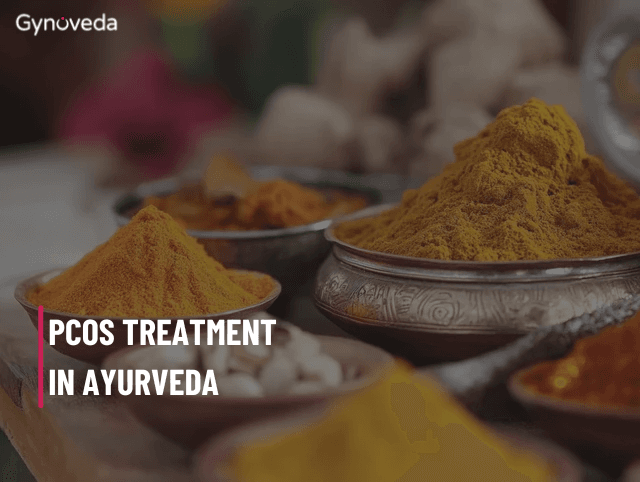Best Age to Get Pregnant with PCOS: Expert Guide

Do you find yourself questioning at what age to become pregnant if you have PCOS? You are not alone. Most young women in India question this when they discover they have PCOS. Polycystic Ovary Syndrome (PCOS) occurs in approximately 6 to 13% of women. Sadly, up to 70% of such women are not even aware that they have it. Family planning becomes more complicated.
Physicians say the ideal age for pregnancy in PCOS would be between 22 and 32 years. That is when a woman can most likely conceive. It is more difficult after 35, even in fertile women. In PCOS, ovulation may be abnormal, so it is even more challenging. Thus, experts say to try for PCOS the best time to conceive is sooner when the opportunity is greater.
This blog will tell you the best age to get pregnant with PCOS, the risks of delay, and provide expert guidance. Read on if you wish for straight answers and recommendations to help you plan.
Understanding PCOS and Reproductive Age
Do you wonder why pregnancy is more difficult with PCOS? You're not the only one. Most women are bewildered by how age and PCOS affect their ability to conceive. According to a recent UN report, the number of children per woman is falling across the globe. Thus, you must discuss women's fertility, particularly in conditions such as PCOS.
Now, let's see how your age, your body, and PCOS all interact when getting pregnant.
Normal reproductive age in women (late teens to late 30s)
Most girls experience this period in their early teenage years.
Women are likely to have children between late adolescence and up to about 30 years of age.
If you are below 30, you have an 85% chance of getting pregnant in a year.
At 30, it is 75%, and at 35, 66%.
At 40, the chance is 44%. This is because the quantity and quality of eggs reduce with age.
How PCOS delays or disrupts ovulation
PCOS alters the action of your ovaries.
Most girls with PCOS get their periods irregularly. That makes it hard to understand when you ovulate.
You can be late ovulating for weeks. It will occur on Day 50 of your period sometimes.
PCOS also increases male hormones, which will prevent the regular release of eggs. That closes your window of fertility with PCOS.
Importance of early diagnosis and planning
Getting an early diagnosis of PCOS really does make a difference.
You can begin eating nutritious food, exercising, and reducing stress.
These can help manage your symptoms and regulate your periods.
This improves your chances of falling pregnant. With the right treatment, women can get the best time to conceive naturally. So, it is good to know how your reproductive age is related to PCOS.
Why is an Earlier Pregnancy Easier with PCOS
Struggling to conceive with PCOS? You're not the only one. We all wonder — when is the best time to try? The solution is simple. The earlier you plan your pregnancy with PCOS, the better your chances. Your fertility window with PCOS is broader in your 20s. Let's find out why.
Eggs are healthier at a younger age
During your 20s, your body produces healthier eggs. This is important for women with PCOS because they cannot ovulate normally. Healthier eggs equate to a healthier opportunity to get pregnant on your own. This also means that you may not need strong fertility drugs. Your eggs decrease both in quantity and quality as you get older. Thus, obtaining the PCOS fertility window early will make a big difference.
Lesser chances of complications (diabetes, hypertension, miscarriage)
Young women have fewer problems, like high blood pressure, diabetes, or miscarriage during pregnancy. These are more prevalent in women above the age of 30, particularly those with PCOS. Pregnancy at an early age reduces these risks. It also makes pregnancy healthier and simpler.
Response to lifestyle and Ayurvedic treatment is faster
When you are at a young reproductive age PCOS, your body adjusts rapidly to changes. This can be exercising, eating well, or using Ayurvedic herbs; the effects seem to occur sooner. It is easier to manage PCOS symptoms and become pregnant within your window of fertility.
Beginning early provides your body with more time, energy, and a better opportunity.
Risks of Delaying Pregnancy with PCOS
Considering a baby in the advanced years? If you have PCOS, waiting can be highly dangerous. Most women who have PCOS are already experiencing irregular periods and hormonal imbalances. If you delay pregnancy, the chances of developing complications are high. Women who are trying for a PCOS pregnancy after 35 can face severe problems. Checking your AMH levels can help assess ovarian reserve before planning pregnancy.
Let's see the significant delayed pregnancy PCOS risks:
Reduced egg quality
With increasing age, the quality of your eggs declines.
Women with PCOS often experience irregular ovulation or anovulation. Delaying longer can lower the possibility of conceiving naturally.
The quality of the eggs can also affect the success of fertility therapy. Even if periods appear to be normal, the eggs may not be healthy enough to conceive.
Increased risk of gestational diabetes, preeclampsia
Women with PCOS are already at increased risk of developing diabetes during pregnancy.
Research indicates that they are 51% more prone to developing gestational diabetes.
They are at increased risk of developing high blood pressure, preeclampsia, and eclampsia. These complications can impact the health of the baby and mother at the time of delivery.
Higher reliance on fertility treatments like IUI, IVF
Nearly 80% of women with PCOS who are not able to ovulate must undergo treatments such as IUI or IVF. If you wait for long, your body won't respond to these treatments. Success rates also decline as you age. Thus, waiting may result in longer and costlier treatments.
More cystic complications in later reproductive years
PCOS results in cysts on the ovaries. These cysts grow more painful or become more complicated with advancing years. Some women need to undergo surgery. Delaying pregnancy complicates the chances of getting pregnant, thereby complicating it later on.
Ayurvedic Perspective on Age and Fertility in PCOS
Can Ayurveda assist women with PCOS in conceiving children? Yes! Age, too, comes into play. Most women with PCOS are worried about having children. The question arises: When to conceive naturally? Ayurveda recommends the earlier, the better. This is due to the fact that PCOS symptoms become worse with advancing age. Don't worry, Ayurveda for fertility with PCOS focuses on balancing hormones and health.
Maintain a Healthy Weight
Weight gain is a frequent complaint with PCOS. Not every weight loss plan works for everyone, though. Ayurveda recommends taking on a plan that is compatible with your lifestyle. The Satvik vegetarian diet is helpful. Low-carbohydrate or high-protein diets might be right for some, but not everyone. Pick an approach that seems comfortable for your body. Dropping 5-10% of your weight can increase ovulation and enhance conception chances.
Satvik, High-Fibre Indian Diet
Satvik's diet is light, fresh, and high-fibre. It facilitates easy digestion and reduces toxins. Consider whole grains, season vegetables, and fruits. Steer clear of fried and processed food. A 7-day Satvik diet plan is an ideal way to know what works for you. Ayurveda recommends that food be in harmony with your body, daily life, and culture.

Include PCOS-Friendly Herbs (Shatavari, Lodhra, Gokshura)
Indian herbs are highly useful for balancing PCOS. Shatavari enhances ovum health and hormone balance. It stabilises cycles and enhances fertility. Lodhra enhances irregular periods and makes the uterine lining healthier. Gokshura enhances ovarian health and reduces insulin resistance. Ashoka, Guduchi, Aloe, and Triphala are some other useful herbs. These herbs cut toxins, reduce cysts, and maintain reproductive organs healthy naturally. Most physicians now prescribe these herbs with modern medicines.

Regular Ovulation Tracking, Yoga, and Stress Management
PCOS causes irregular periods. You have no idea when you are ovulating. You can check your cycle with cervical mucus tests, ovulation kits, or temperature charts. Yoga works beautifully in managing anxiety and stress. Baddha Konasana and Paschimottanasana bring blood to the reproductive organs. Stress is a sneaky problem. It disrupts hormones and makes PCOS worse. Do meditation, deep breathing, or walking in nature. These habits bring calmness into your body and get your body working at its best.

When to Seek Medical Help or Ayurvedic Consultation
Are you attempting to get pregnant but are unsuccessful for 6 to 12 months? You need medical treatment or an Ayurvedic specialist.
Most women with PCOS have trouble getting pregnant this time. And the longer you wait, the more delayed the appropriate treatment will be.
If your menstrual periods are irregular or not occurring at all, it can show you're not ovulating. If you're not ovulating, it's basically impossible to get pregnant naturally. This is where doctors will normally recommend ovulation induction. Doctors can prescribe pills or injections that will make your ovaries release an egg.
If that doesn't work, you may need more advanced treatments such as IVF. IVF employs fertility injections to stimulate the production of many eggs. The physicians harvest these eggs, combine them with sperm, and place them in the uterus.
Ayurveda for PCOS fertility provides a more natural and mild approach to support. It employs Nadi Pariksha, a balancing of hormones, diet regimen, and herbs. Most women practice Ayurvedic therapies if they want fewer side effects. Integrated care techniques have improved results.

Conclusion: Don't Delay, But Don't Panic
If you're planning to get pregnant, it's natural to be under stress and confused. But the truth is—you can't have a perfect age for everyone. The optimal time to get pregnant naturally is when your body, mind, and support system are all in harmony. For most women, their early 20s to early 30s are the golden years. But even if you're older, don't give up hope. More important is how you take care of your body. Ayurveda for PCOS fertility can bring your hormones into balance. Begin early with small positive changes. Eat well, sleep on time, and control stress. Wait, not too long, but panic not too. Act sensibly, not out of fear. With the right action and the right advice, your chances will increase. Just be consistent, and your body will pay you back.
Planning For A Baby?
India's 1st Ayurveda Fertility Clinic
20K+ Couples Became Parents
Rated 4.6/5 By 13K+ Happy Parents
You May Like
Frequent Asked Questions








